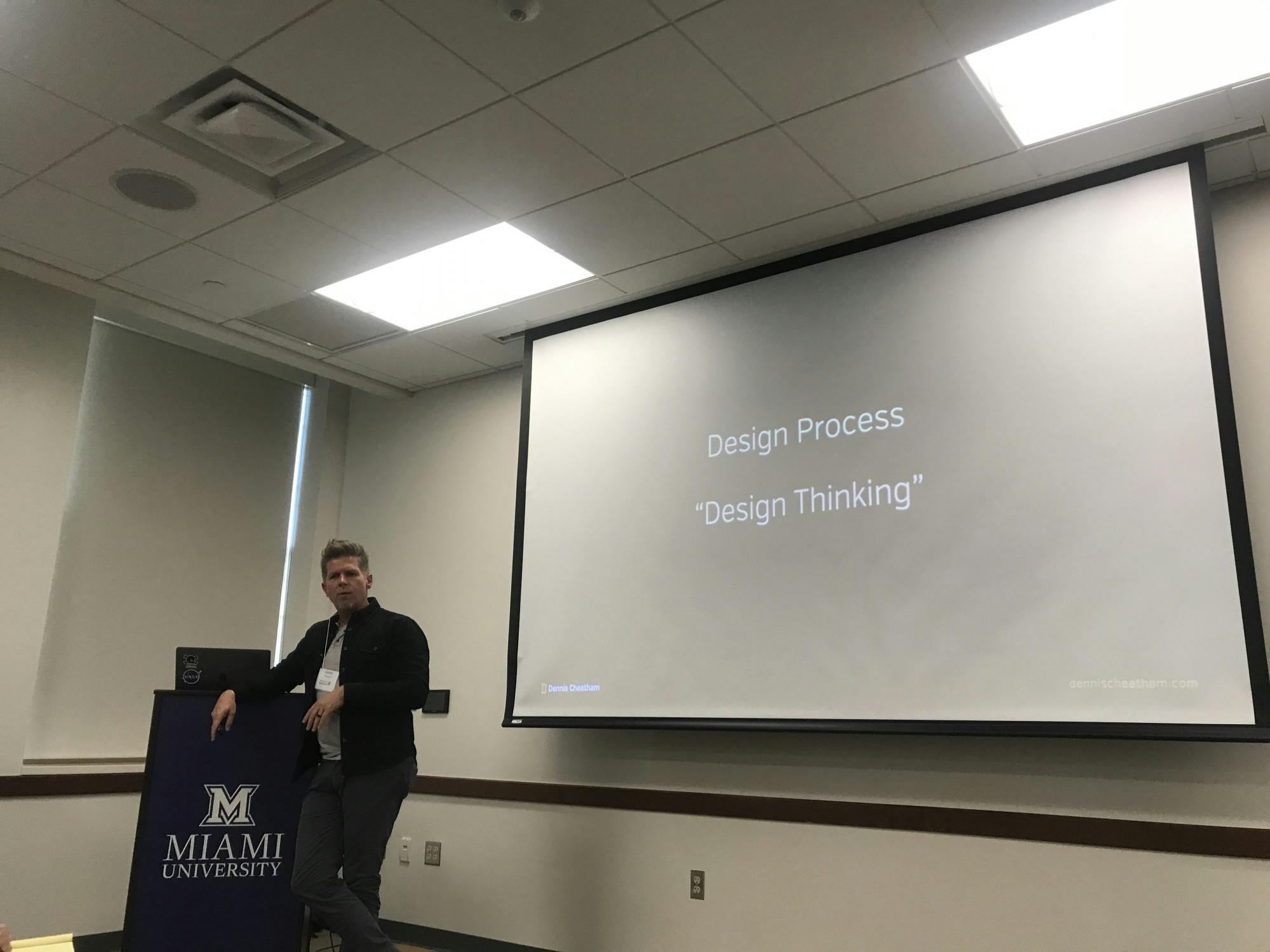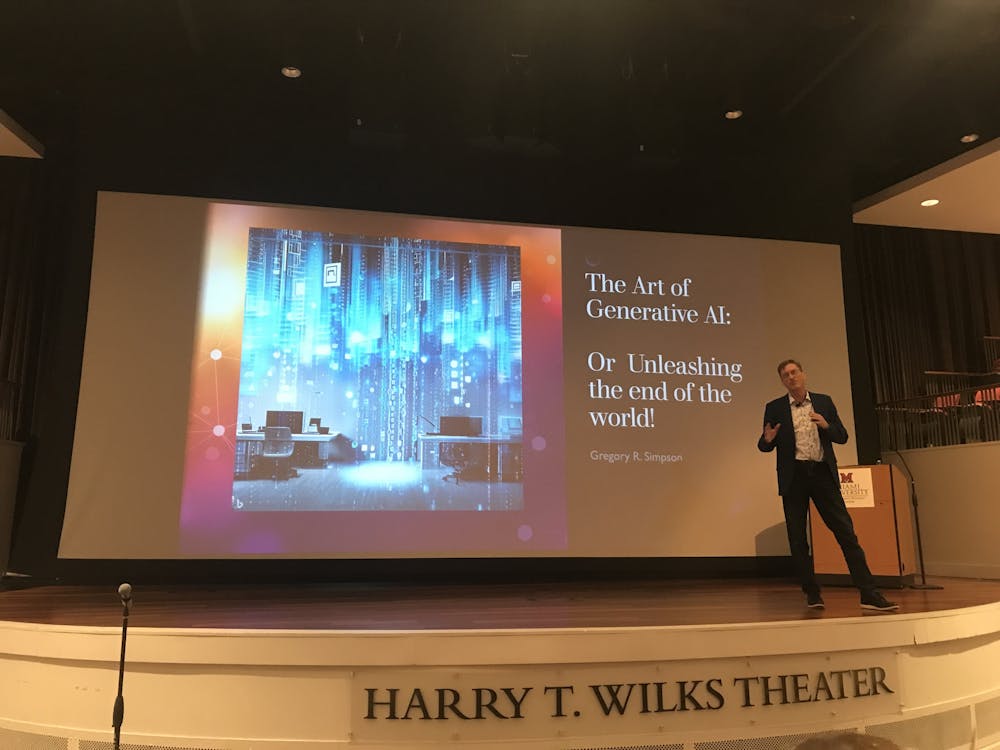On Wednesday, faculty, students and staff gathered in the east wing of the Armstrong Student Center at Miami University, eager yet hesitant to learn about the current and future landscape of artificial intelligence (AI).
Hosted by Miami’s information technology (IT) department, the university’s inaugural AI Symposium included more than 30 speakers and more than 15 sessions surrounding the role of AI in the classroom, its negative effects and the ethics of its use.
David Seidl, vice president for IT and chief information officer at Miami, said they planned the symposium in 60 days because they saw the need to have conversations surrounding the rapidly growing technology.
“I’ve been seeing this AI stuff really spinning up. There’s a lot of it going on,” Seidl said. “And I knew we had a Miami moment where we either jumped on it or we were conservative, and the Miami we want to be is one where we want to be doing that kind of thing.”
The symposium kicked off at 9 a.m. with three different sessions on how AI tools could impact writing and literacy, the future of teaching and how AI could impact STEM research.
Mandy Olejnik, the assistant director of Writing Across the Curriculum at the Howe Center for Writing Excellence, led one session with Rena Perez, a doctoral student at Miami. They discussed when and how ChatGPT can be used to help with writing ethically.
In their presentation, Olejnik and Perez said AI tools can be helpful in the writing process, but it has to be taken into careful consideration of when and how to use it. Olejnik suggested encouraging students to get comfortable with AI for brainstorming and organization, but not for producing final products.
“There’s different ways to address this particular issue,” Olejnik said. “But we’re interested in talking more about how the tools can be used in the writing process in ways that actually might help and enhance what we’re trying to get our students to learn.”

Rena Perez, a doctoral student at Miami, works at the Howe Center for Writing Excellence, and spoke with Mandy Olejnik about the constraints of AI.
Emmy Niswonger, a senior data analytics major, came to the symposium as part of her job in University Advancement, but also to familiarize herself more with AI.
“The job I’m working in this upcoming summer, I will be in the IT field, so it’s really helpful to know how businesses use AI,” Niswonger said. “It’s also really interesting as a student to see the back end … of how it will affect other students.”
Enjoy what you're reading?
Signup for our newsletter
Additional presentations throughout the day covered AI’s implications for intellectual property, insights from faculty and students, and how AI will change curriculum development.
At 11 a.m., Greg Simpson took the stage in the Harry T. Wilks Theatre to give his keynote address about using AI to cultivate creativity and progress innovation.
Simpson, who became the chief technology officer for General Electric in 2005, has worked in IT roles for more than 37 years, so he has seen the evolution of AI over the past three decades.
“My father didn’t have electricity until he was 13 years old. He lived on a farm,” Simpson said. “So we went from a period of one generation prior with no electricity and milking cows … to the evolution of AI … As time advances we can look back and realize how far we’ve come.”
Simpson encouraged audience members to embrace AI in their professional and personal lives because the technology is already here and continually developing.
After the keynote speech, the day continued with more sessions. Communication design professor Dennis Cheatham led a session on how he has used AI in his classes, the mistakes he has encountered and what he would do differently next time.
“As educators, we have to change how we teach,” Cheatham said. “We have to understand that knowledge is different now. If our job is teaching knowledge, thinking and skills, then we can’t ignore generative AI because it does change our relationship with the very thing we’re doing in this job everyday.”

Dennis Cheatham, a communication design professor at Miami, discussed how he incorporates AI in the design process to modify design thinking.
Seidl said he hopes professors, staff and students will take away an understanding of how to adapt to AI in ethical, but beneficial, ways.
“We need to build a strategy for AI, we need to think about policies, but we also need to build awareness of AI,” Seidl said. “It’s a three-fold thing. It’s figuring out who in our community is, engaging them, and then putting us in the right direction to make AI something we work with and understand well to serve Miami.”




